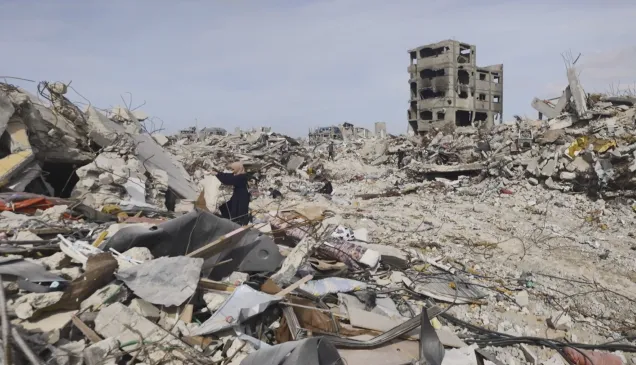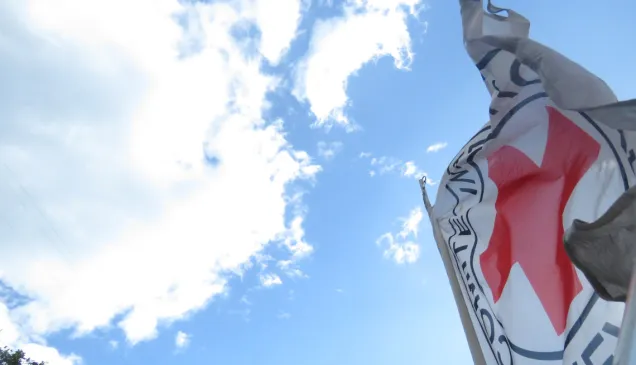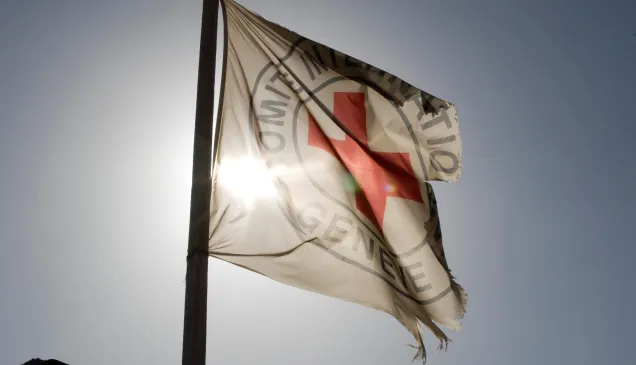Lebanon: Displaced and trading innocence for resilience in the suburbs of Beirut
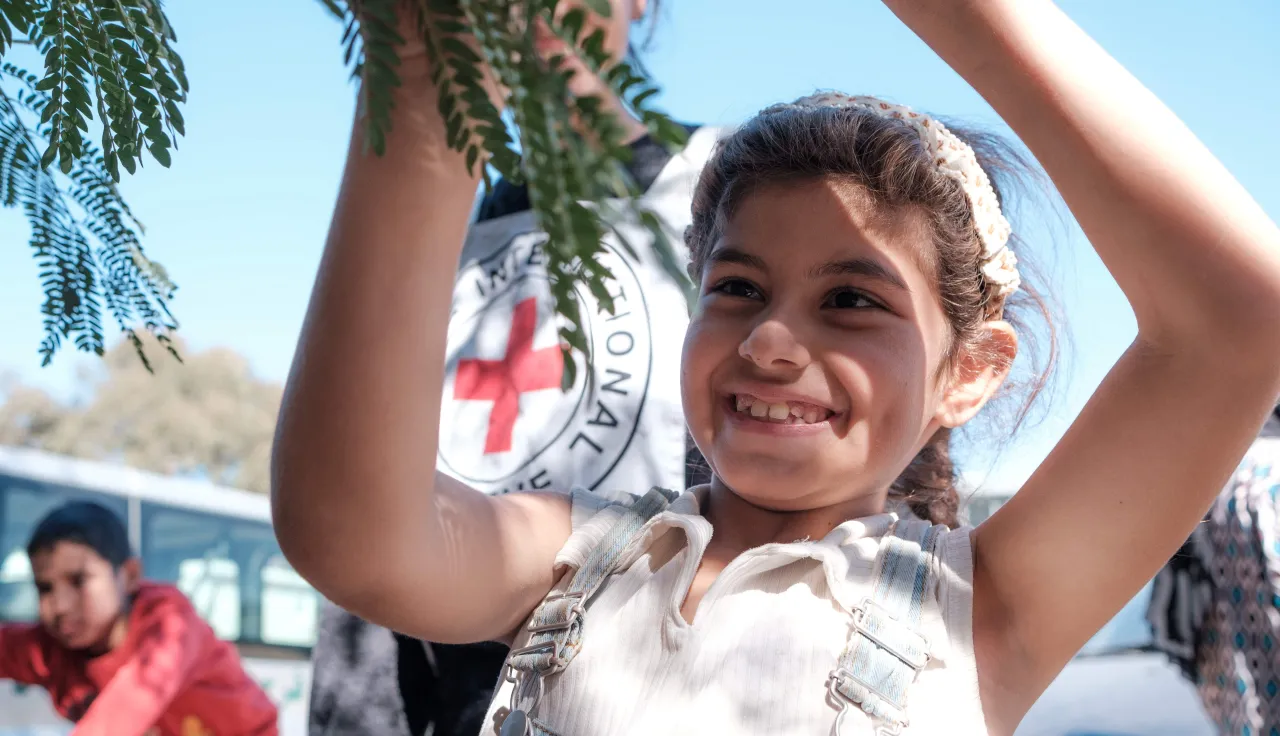
A little girl's biggest hope
For seven-year-old Batoul, there is life “before”, and life “after”.
“Before”, she lived in her home in Ouzai, Beirut, where she slept soundly at night, had pretty clothes to wear and the smells of her mother’s cooking drifted from the kitchen – her stuffed zucchini, Batoul’s favourite.
“After” has been everything that has happened since she and her mother were forced to flee their home in search of safety following heavy bombing in their neighbourhood.
They left in a hurry, on foot, taking only what they could carry, and slept wherever they could – mostly on the streets. Batoul was frightened, sad, and embarrassed she’d had to leave her pretty clothes at home. After nearly a month of uncertainty about where they would sleep from one night to the next, Batoul's mother secured a place for them in a collective shelter, providing a roof over their heads and a semblance of safety.
But raising a little girl alone under these circumstances would push any parent to the brink of their coping mechanisms. Batoul’s mother says that every day is a struggle, and she takes anti-anxiety medication to get through the difficult days.

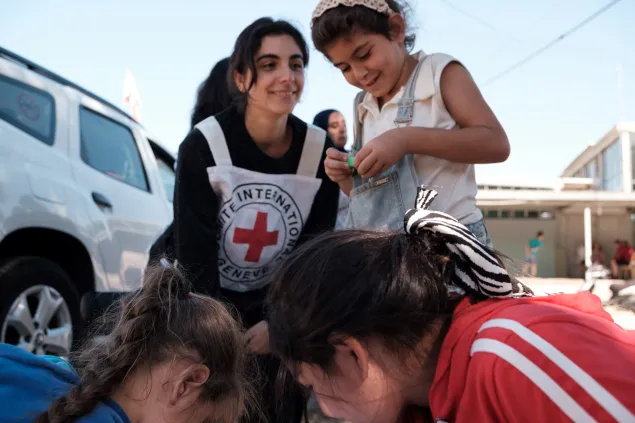
A little girl holding on to hope: Seven-year-old Batoul plays with the other children outside the shelter where she and her mother are staying in the suburbs of Beirut. Her smile lights up her whole face, despite everything she has been through. “All I want is for the war to end so that every kid can go back home,” she says hopefully.
A father's fear for the future
Batoul and her mother’s story is one that is shared by countless other families who are navigating the harsh realities of internal displacement across Lebanon.
Maria’s father watches his daughter play with the other children who have found refuge at the Karantina collective shelter, and grieves the drastic change in their lifestyle. Before the conflict turned their lives upside down, he provided a good life for his children in a comfortable home. When they were forced to leave their home in the southern suburbs of Beirut they also had to abandon the electronics shop that was their livelihood – and for now there is no way of knowing if it has been destroyed.
Before arriving at the shelter, the family had been staying at the home of one friend after another, jobless and unsure what the next day would bring. Now they have a place to stay but are struggling with a suspected case of scabies and lacking access to proper medical care. The loss of stability and normalcy weighs heavily on Maria’s dad as he fights to protect and care for his family under these dire circumstances.


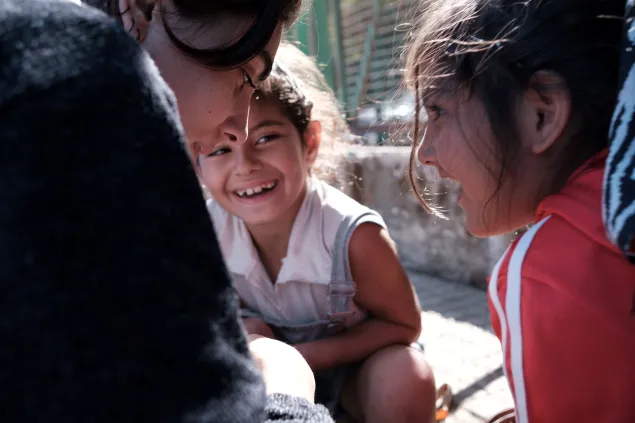
Maria’s father watches her play with other children at the shelter and worries about the future. Before the conflict he provided a good quality of life for his children. Now it saddens him that he can’t even afford to buy them the breakfast cereals they love.
Protection of internally displaced people under international humanitarian law
Internally displaced persons (IDPs) are among the most vulnerable populations in times of crisis. Unlike refugees, they remain within their country’s borders and rely on their own state for protection. Yet, in fragile contexts, the state’s capacity to uphold these responsibilities can be limited. Under IHL, all civilians, including IDPs, are entitled to protection from harm, access to essential aid, and respect for their dignity.
As a consequence of being displaced, people often struggle to meet their essential needs, and they may face particular threats, such as tensions between them and host communities, settlement in unsafe or otherwise unfit locations, and being forced return to unsafe areas. Also, the lack of access to official documents, often left behind or lost during flight, is one of the major concerns affecting internally displaced people. Without those documents, people may not be able to access essential services such as health care and education.
Many displaced families who had been sleeping on the streets following the escalation of hostilities in Lebanon were invited to take refuge in the newly refurbished shelter in Beirut's Karantina neighborhood, which has become a lifeline for families displaced by the conflict. Once a deteriorating structure, the shelter has been transformed through the collaborative efforts of local authorities, community members, and international organizations like the ICRC. Designed to meet the immediate and long-term needs of internally displaced people, the shelter provides safe, clean, and secure living spaces for individuals and families grappling with the uncertainty of displacement.
Inside, the shelter features private rooms for families, communal areas to foster a sense of community, and access to basic services, including clean water and sanitation facilities. These improvements not only offer physical protection but also promote the well-being of residents. This shelter represents more than just a roof. For families uprooted by Lebanon’s ongoing crisis it is a chance to rebuild lives and regain a sense of near-normalcy.

Many displaced families who had been sleeping on the streets were invited to take refuge in the newly refurbished shelter in Beirut's Karantina neighborhood.
A boy's brave smile
Seven-year-old Ghadi’s life was turned upside down overnight. In his “before”, the days were filled with the ordinary things of childhood – school, a favourite red toy truck, and playing with friends at his grandmother’s house in the southern suburbs of Beirut.
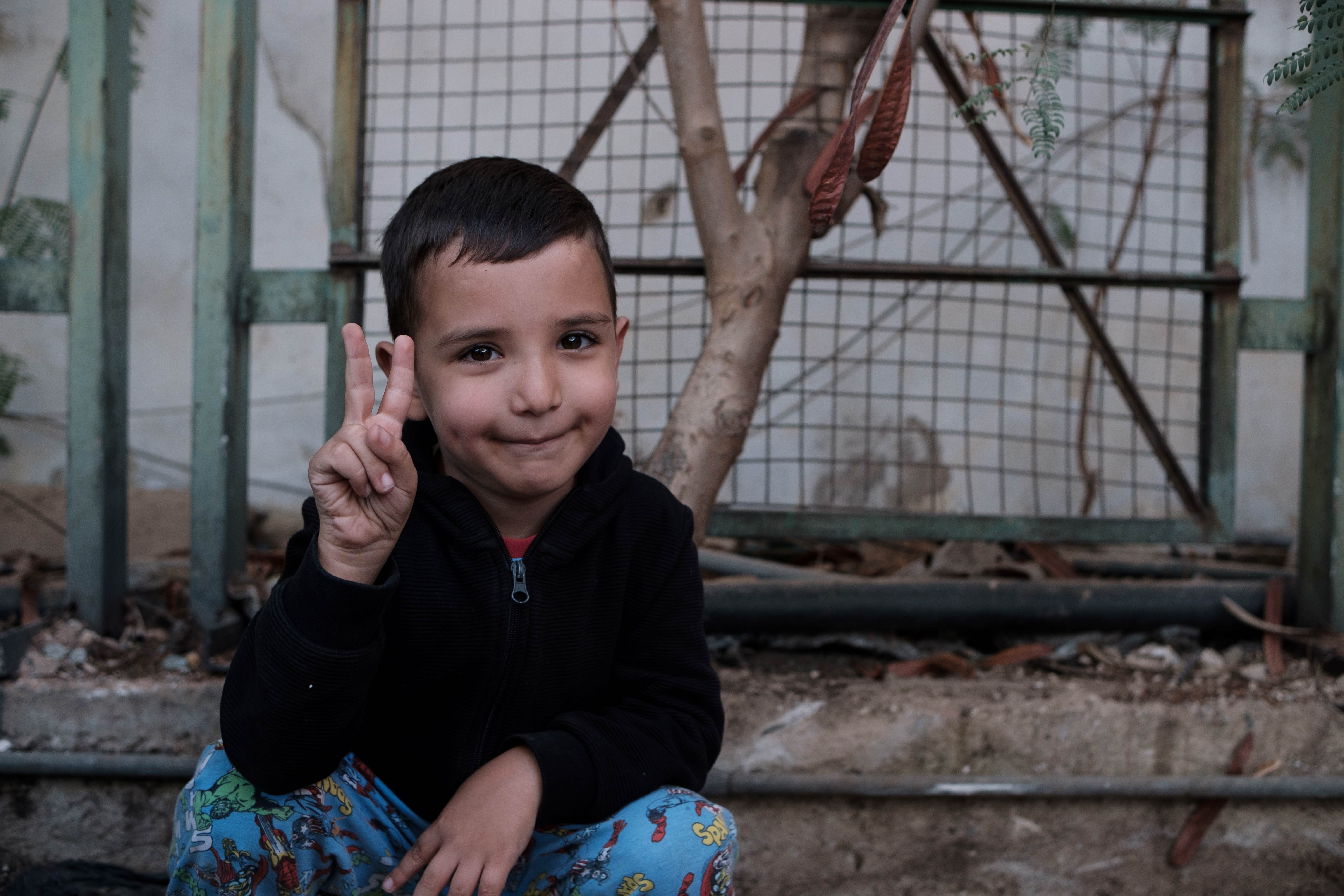
When strikes hit their neighbourhood, Ghadi, his parents and his older brother fled, leaving everything they knew and loved behind. Like Batoul and her mother, they moved from place to place, each day bringing fresh uncertainty about where the family would sleep that night. Ghadi’s gluten intolerance – a minor inconvenience before – now means that finding food he can eat has become a very real part of his parents’ everyday struggle. He reassures his mom with a smile. “It’s okay mom, my stomach doesn’t hurt,” he says bravely.
Ghadi dreams of becoming a doctor one day so he can help other kids like him and people like his aunt, who uses a wheelchair, restricting her from travelling, and whom they could not bring with them. Behind Ghadi’s smile when he speaks of her is a sadness beyond his years. Perhaps that’s what war does — it forces children like Ghadi to grow up far too quickly, trading innocence for resilience.
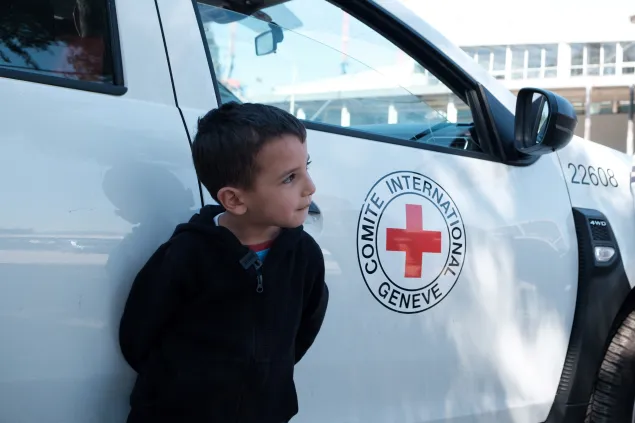
A childhood disrupted: Ghadi and his family have been displaced from their home in the southern suburbs of Beirut. He dreams of becoming a doctor one day and misses his Aunt and his red toy truck.


